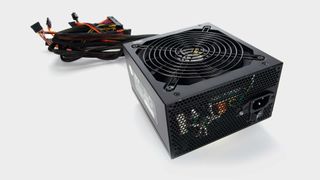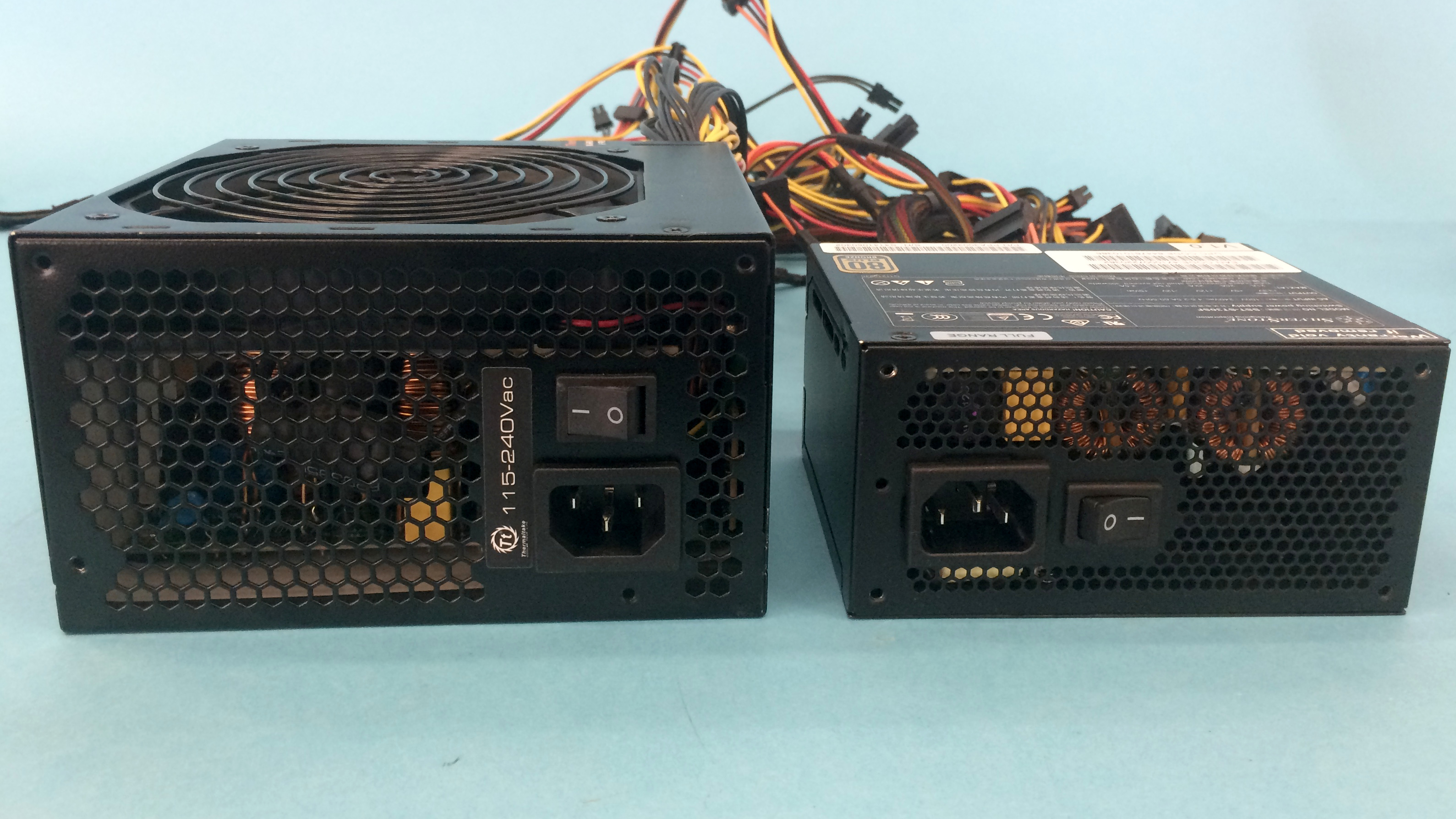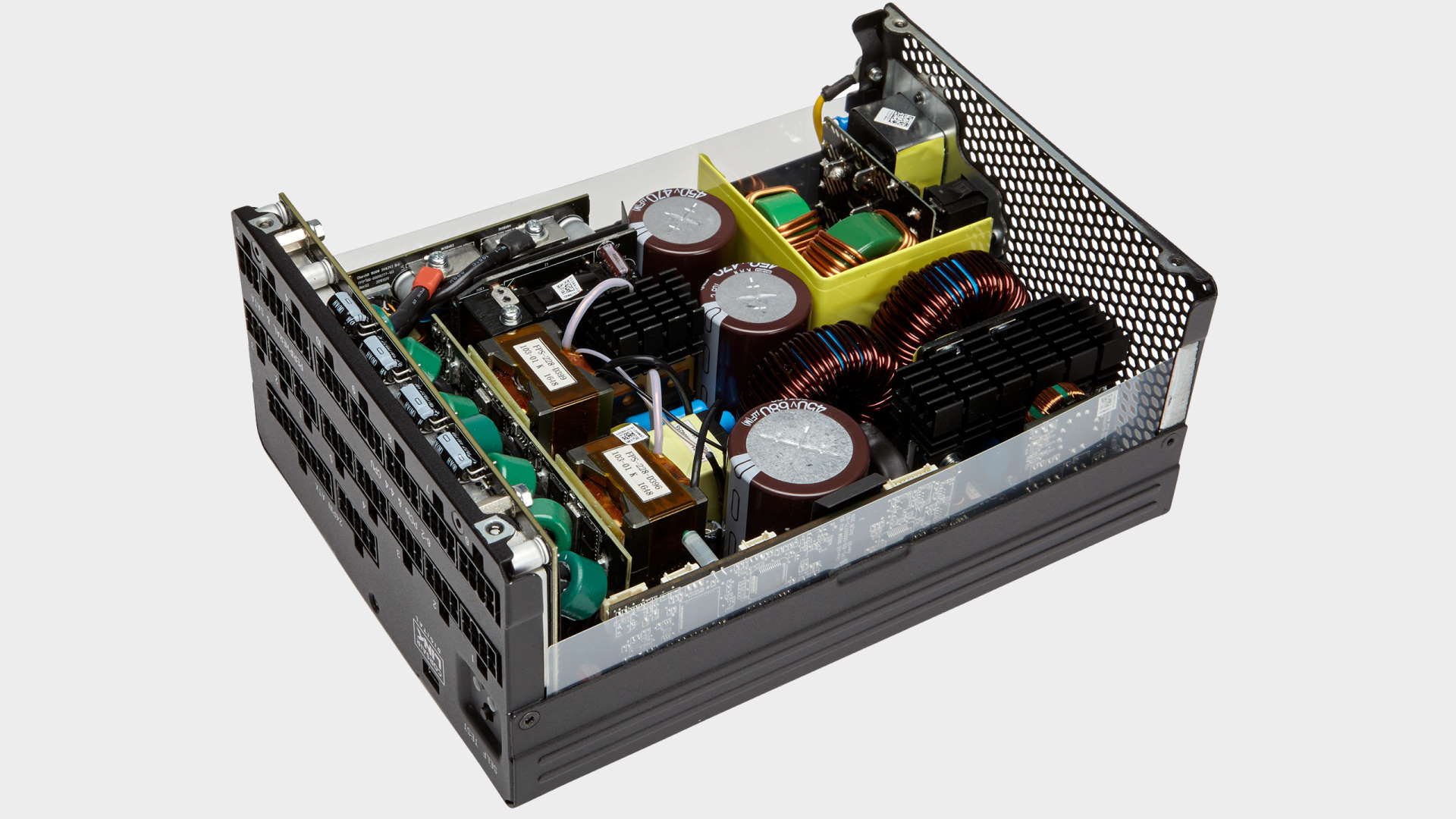How to choose the perfect power supply for your gaming PC | PC Gamer - hurlbutmonatur
How to choose the perfect power supply for your play PC

The power supply is the beating heart of your gambling PC, the part that circulates the life-sustaining lifetime-blood of mightiness around your expensive central processing unit, motherboard, and art card. The power supply can dictate the limits of your ambitions when it comes to potentiality PC upgrades, so information technology's forever worth safekeeping one eye on the future when it comes to pick your next power supply.
You have to determine first-year how many Watts your arrangement, or prospective system consumes, and connected tipto of that, you have to leave enough dynamic headroom for coming upgrades. Moreover, you should keep in mind that the sweet efficiency spot is unremarkably around 40-50% of the PSU's max-rated capacity. That and the nearest a given power supply is to its max load output, the lowest the efficiency.
So, if your system needs 500W at awash load, it's not wise to get a 550W PSU but, at least, a 650W one. That said, most of us won't highly stress our systems well-rounded the clock unless you someways have the time to constantly play games. Gambling can Be seriously taxing on your PSU since they will more often than not fully warhead your graphics card, which is likely the most thirsty part of your setup.
To get an idea of what your system, operating theater dream upgrade, leave flavor like in price of power draw you fire well go into wholly the particulars into a handy PSU calculator. We like to use the OuterVision World power Supply Calculator, only there are others available.
The nigh accurate way to determine your system's power inevitably is to use a kill-a-watt device and take apart some readings under full load, that's useful if you want to replace the alive PSU. Eminence that this procedure will only give you an indicative reading since it doesn't allow your PSU's efficiency.
The most muscularity-demanding parts in today's systems are the GPUs with the CPUs following. Unfortunately, the manufacturers do non supply clear information on the actual GPU king consumption, and to make matters worse, you besides have to take possible big businessman spikes that can reboot the system if the PSU isn't strong plenty to grip them.
Happening upper of that, Intel and AMD's official TDP values for their CPUs are not fifty-fifty close to the actual power consumption numbers pool since they bring up to normal and not boost clocks. Under inflated frequencies, CPUs draw much much Isaac Watts than the established TDP from the PSU, and things puzzle over even worsened, of course, if you decide to overclock.
Even at default settings, some high-end CPUs can ask for 300W operating room more power. Yes, we're looking at you Mr. Core i9 11900K. If you combine this with a high-end GPU's power consumption, you will quickly figure that you need an 850W OR symmetric stronger PSU for a high-final stage gaming system.

The PSU's dimensions wreak a role in your next system build. You cannot use a canonic ATX12V power supply in a mini-ITX chassis which requires an SFX PSU, e.g.. Thankfully, the prevalent screen background PSU form factors are qualified to the following
- ATX12V (PS/2) [reference dimensions: 150mm (W) x 86mm (H) x 140mm (D)]
- SFX12V 80mm fan [reference dimensions: 100mm (W) x 63.5mm (H) x 125mm (D)]
- SFX12V Reduced Depth 80mm fan [reference dimensions: 125mm (W) x 63.5mm (H) x 100mm (D)]
- SFX-L [reference dimensions: 125mm (W) x 63.5mm (H) x 130mm (D)]
The SFX-L is not an administrative unit ATX spec format, since it was introduced by Silverstone in 2014 and several unusual brands subsequently adopted it. It has longer profundity than SFX to admit for a stronger platform.
You've probably heard of Titanium, Platinum, Gold, and other metal ratings in PSUs. These show the PSU's efficiency, in other words, how much power the PSU draws from the socket to deliver power to your system. The more efficient the power supply, the better for the environment since it minimizes your carbon footprint. On top of that, you also save money on electricity in the end.
Currently, the deuce efficiency certification agencies role almost the one ratings, which you leave find below:
- Diamond (Cybenetics)
- Atomic number 22
- Platinum
- Metallic
- Silver medal
- Bronze
- White (80 Advantageous)

Other significant decision you undergo to make in front you put in a new PSU is what type of cables do you accept; modular operating room non? Usually, the higher-end power supplies, which toll more than, come with fully standard cables. You leave generally only find fixed cables in the budget categories, and somewhere between the middle, you will discover semifinal-modular PSUs. Many of those also belong to the budget or mid-tier categories.
If you can deal with regressive cables and need a PSU for a mainstream system, there is no need to pay more for a fully standard unit of measurement. But if you'ray aiming to use the bare minimum cabling, without a huge number of wires floating some your scheme, then a full or semi-modular setup is the way to go.
Many and more citizenry are starting to realise what an affect the PSU has on a system's boilers suit noise output. As weird A it power sound, your power supply can diddle a earthshaking persona in the noise of your PC below load.
The high the efficiency, the lour the thermal load, so the PSU's rooter doesn't have to spin at high speeds. This agency that your best bet for a unarticulate PSU is to buy one with the highest possible efficiency rating. Still, this doesn't mean you will select a dead tranquility big businessman supply, and so it is good to read some reviews before continuing with the purchase.
We've noted our own tested noise ratings in our record-breaking power supply guide to spring you an idea of how the top side PSUs sound. Cybenetics offers PSU noise certifications, and so with a quick reckon in the in proportion to database, you will observe the PSU that meets your acoustic demands.
The Cybenetics noise ratings are listed on a lower floor:
- A++ (<15 dBA)
- A+ (15 to 20 dBA)
- A (20 to 25 dBA)
- (25 to 30 dBA)
- Standard ++ (30 to 35 dBA)
- Standard + (35 to 40 dBA)
- Standard (40 to 45 dBA)
That's all you really need to know about choosing the right power supply as a PC gamer, but if you want to really probe how a PSU works then we've got some words for you. That's the deep physical phenomenon stuff, but wattage, efficiency, cabling, and noise levels are the most important things to conceive when you're really look to buy yourself a new power supply.
Source: https://www.pcgamer.com/how-to-choose-a-power-supply/
Posted by: hurlbutmonatur.blogspot.com


0 Response to "How to choose the perfect power supply for your gaming PC | PC Gamer - hurlbutmonatur"
Post a Comment